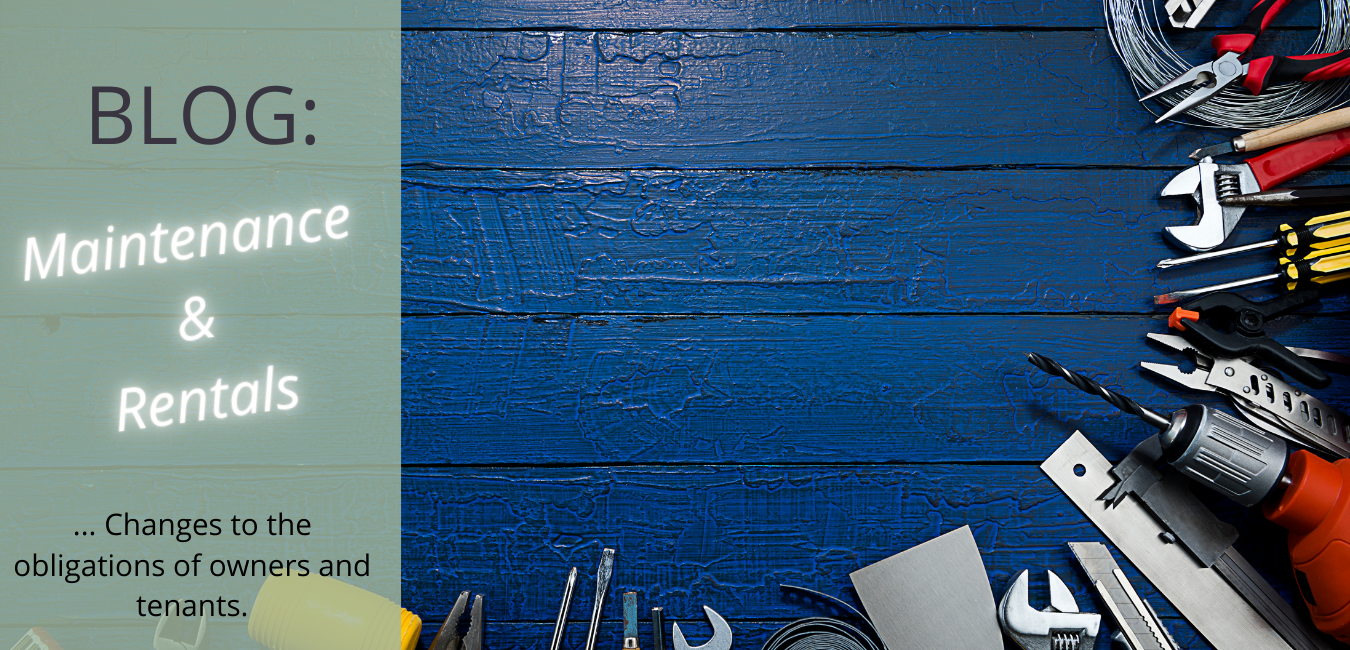
From October the 1st 2022, changes come into effect regarding maintenance on rental properties mainly pertaining to obligations of owners. The full changes will be included below, but for simplicity’s sake the main changes are summarised below.
The following all relate to new section 221 of the Residential Tenancies and Rooming Accommodation Act.
A tenant, or a representative entity, is now able to apply to the tribunal for maintenance. The tenant can have a tenant advocacy body such as the government funded QSTARS or Tenants Qld represent them and make the application. However, subsection 221(2) provides that the representative entity cannot make an application for a repair order unless the tenant agrees to the application or the orders being sought.
Under subsection 221A(3) a tribunal is able to make any order about repairs that it deems appropriate. It also states that if the property is vacant the tribunal can order the property not be occupied under a lease agreement until the repairs have been carried out.
Section 221C goes on to say that when an order is made the person responsible must comply with the instructions, otherwise, they can be liable for up to a maximum of 50 penalty units (max presently $6,892.50). At the time of writing a penalty unit in Qld is $137.85 (current at June 7 2022). A continuing offence may attract a weekly maximum penalty of 5 penalty units or currently $689.25.
Under new section 307D a tenant can now give notice of intention to leave a property if a repair order has been issued and the due date has expired without any reason and without repairs having been completed.
In summary the burden of ensuring that maintenance is completed on time really falls with the owners and the property manager. And there can be fairly serious repercussions in the event that these are not rectified and brought to the tribunal.
Full changes to the Act:
New section 221 is an Application for repair order for residential tenancy agreements. New subsection 221(1) provides that the tenant, or a representative entity, may apply to the tribunal for a repair order if the premises or inclusions need repair and:
- for routine repairs, the tenant has informed the lessor or agent of the need for repairs (in line with requirements under section 217, and the repair was not done within a reasonable time after the lessor or agent was informed of the need for repair by the tenant.
- for emergency repairs, the tenant has been unable to notify the lessor or nominated repairer of the need for the repair or the repair was not made within a reasonable time after the tenant had given notice to the lessor or nominated repairer of the need for repair.
Subsection 221(2) provides that the representative entity may not apply for the repair order if the tenant does not consent to the entity applying for the order or the tenant and entity do not agree on the order to be sought.
New sections 221A to 221C deal with repair orders granted by the tribunal for a residential tenancy agreement. New section 221A Granting repair order allows the tribunal to grant an application for a repair order if the tribunal is satisfied the application is made under section 221.
Under new subsection 221A(2), the tribunal must give consideration to the conduct of the lessor and agent, the risk of injury that the damage is likely to cause a person at the premises, and the loss of amenity caused by the damage. The tribunal may also consider any other matter the tribunal considers relevant.
Under new subsection 221A(3), the tribunal may make any order or give any directions about the repairs it considers appropriate in the circumstances, or if the premises is vacant, the tribunal may make an order that the premises not be occupied under a residential tenancy agreement until stated repairs are completed.
New subsection 221A(4) provides that, without limiting new subsection 221(3), the tribunal may make an order about 1 or more of the following matters:
- what is, or is not, to be repaired
- that the lessor carries out the repairs within the time decided by the tribunal
- that the tenant may arrange for a suitably qualified person to carry out the repairs for an amount decided by the tribunal
- who must pay for the repairs
- that the tenant may pay a reduced rent until the repairs are carried out to the standard decided by the tribunal
- that the lessor must pay an amount to the tenant as compensation for loss of amenity
- that a suitably qualified person must assess the need for the repairs or inspect the premises or inclusions
- that the residential tenancy agreement ends if the repairs are not completed by a stated date.
New subsections 221A(5) and (6) provide that until a repair order is complied with, the repair order continues to apply to the premises and does not end with any particular residential tenancy agreement. The tribunal must give a copy of a repair order made under this section to the authority (the RTA).
New section 221B Extensions of time to comply with repair order to allow the lessor to apply to the tribunal for an extension of time to comply with a repair order applying to the lessor. The application is an urgent application as per amended section 415 which defines the definition/matters which are urgent applications to tribunal.
New subsection 221B(2) provides that the tribunal may grant an extension of time to comply with the repair order only if the tribunal is satisfied the lessor is unable to complete the ordered repairs within the required time because of any of the following reasons: hardship, a shortage of a material necessary to make the repairs, the remote location of the premises causing the lessor difficulty in being supplied with a material necessary to make the repairs or engaging a suitably qualified person to make the repairs. The tribunal must notify the authority (the RTA) of any extension granted under this section.
New section 221C Offence to contravene a repair order. New subsection 221C(1) provides that a person must comply with a repair order to the extent the order applies to the person, unless the person has a reasonable excuse. A maximum penalty of 50 units is applied. New subsection 221C(2) provides that an offence against subsection is a continuing offence and may be charged in 1 or more complaints for the periods the offence continues. The maximum penalty for each week the offence continues after a conviction is 5 penalty units. The offence applies whether or not the residential tenancy agreement has ended.
New section 307D Notice of intention to leave because of failure to comply with repair order is inserted. Subsection (1) provides that a tenant may give a notice of intention to leave the premises to the lessor if a repair order applies to the lessor about the premises, and the repair order requires repairs to be carried out to the premises or inclusions by a stated day, and the lessor fails to comply with the repair order by the stated day. A notice of intention to leave under this section is called a notice of intention to leave because of failure to comply with repair order. The notice period is 14 days.
Current subsection 415(5) is amended to include new grounds for urgent applications which includes section 221 (Application for repair order) if the application is about emergency repairs.

